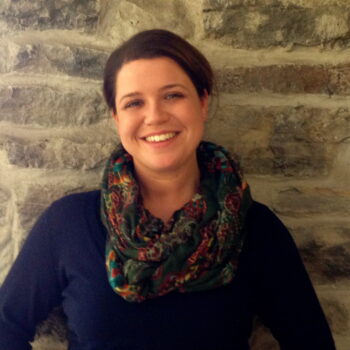We teamed up with Convergence Magazine to ask grassroots organizers from across the country what they learned during the 2022 elections. Here’s what Elianne Farhat from TakeAction MN learned.
What’s an organizing success that you had during the midterms that gives you hope?
Minnesota won a blue trifecta which has a lot of people – including me – excited about what’s possible in our state. It’s not just that the DFL (those are the Democrats in Minnesota) control the State House and Senate, but that they are the most progressive majorities either of those bodies have ever had — and it’s the first time they are both pro-choice majorities. That reality gives me hope in our brilliance and the impact of identifying and committing to long-term strategies.
About five years ago, TakeAction Minnesota made the strategic choice to invest in the capacity to contest in and win primary elections because we knew a DFL majority wasn’t good enough – we needed a more progressive majority. Making that choice and being public about it meant blowback, criticism, and often the erasure of our work because what we were doing didn’t look like what everyone else was doing. Now, today, I am so proud that we made a hard choice, stuck with it, and can see where we as an organization had a measurable impact on making more possible in our state.
This year we chose a voter universe that we could meaningfully engage and confidently take responsibility for motivating to vote. We chose the universe we did because we are clear that the greatest potential for growing left political power in Minnesota is with voters who share our values and are not being counted at the polls or in polling. We found what we expected in our conversations: the people are with us on the issues and are skeptical their vote makes any difference because they have seen so little action. Meaningfully inviting people to vote by connecting with them, validating their frustration, and meeting them where they were at was a key to our success. Not using shame or discordant messages about civic duty and democracy. All told, more than 11% of everyone we talked to opted in to take more action with us.
In total, 120,163 voters got seven touches from TakeAction. I’m excited to see what impact that has. One hopeful indicator: our primary election analysis shows that folks who we had two conversations with were 29% more likely to vote than those we had one conversation with. The other place we built depth into our program was by using deep canvassing on the phones and at doors. It’s a time-, training- and skill-intensive tactic — and one we’re committed to growing because it’s the one field tactic that always proves to have an impact.
What did you learn through the midterms that we can use in the next phase of the fight against the MAGA right?
Trumped-up fears about crime lost – both from Republicans as well as from within the Democratic Party. What we saw in poll after poll is that, yes, people are concerned about public safety and voters support police accountability as well as investments in prevention and restorative justice practices. In Minnesota, candidates who stood up for people-centered public safety all won– from Congresswoman Ilhan Omar facing a primary challenger to Attorney General Keith Ellison in a tough general to Hennepin County Attorney-elect Mary Moriarty..
We also learned that when Democrats stand for something that matters to people, those people turn out to vote for them. For the first time ever, Democrats couldn’t run from using the word “abortion” in public – they had to say that they supported it, and they won. It’s time to believe that when people support an issue – as poll after poll after poll about abortion has shown – it is a good thing to talk about it in public, and voters will vote for you. It honestly makes me pretty upset that a lot of people won re-election on their commitment to defend abortion who refused to take any action to expand access to abortion while in office because they were worried it would hurt their ability to get re-elected. What an absolute joke. The time for such incredibly milquetoast, spineless governance is long past and I hope Democrat Party elites and consultants learn this lesson.
We also got clearer this election cycle on the sites of the MAGA Right threat. In Minnesota, like many places across the country, smaller, more rural towns and school districts are the epicenter of the violence. Places representing religious minorities, like synagogues and mosques, and queer people, like bars and drag story hours, are too. One lesson I am walking away from this midterm with is: we beat the hate and violence back by refusing to be small and scared – and instead choosing to be connected and courageous. Across our state, we were supporting three TakeAction Minnesota members to run for school board in some of the most violent political contexts I’ve ever seen: trucks driven into peoples’ homes, awful hate mail, and scary levels of online vitriol. One of them won and the other two plan to run again. They’ve already made a plan to ensure that Jessica Schwinn (member-elect in the Centennial school district) will always have someone at a school board meeting to have her back and walk her to her car. These hyperlocal ways people are modeling extraordinary courage, solidarity, and care is how we not only defeat the MAGA right, but also build the world our children deserve.
This midterm also shows that the MAGA Right and fascist organizations are a fringe minority in the U.S. They are a radical and violent minority that can do an incredible amount of damage and we must continue to shrink their influence – but they are fringe. As we continue to contain and beat those forces, the Left cannot afford to lose sight of the liberal forces rising to take that space in our politics and public discourse. So-called “resistance liberals” are absolutely part of our coalition as we work to beat back the forces of fascism and rising White Christian Nationalism. But in the struggle to win things like Medicare for All, a Green New Deal, a Homes Guarantee and taxes on the rich – they are either persuasion targets or part of the opposition.
Read more in our View from the Grassroots series:
- Brendan Walsh, Worker Power (Arizona)
- Daniel Altschuler, Maegan Llerena, and Leo Murrieta, Make the Road Action (New York, Pennsylvania, Nevada)
- Tascha van Auken & Divya Sundaram, NY Working Families Party (New York)
- Carrie Santoro, PA Stands Up (Pennsylvania)
- Sam Smith, PA United (Pennsylvania)
- Jay Malone, Texas Gulf Coast Area Labor Federation (Texas)
- Katey Lauer, West Virginia Can’t Wait (West Virginia)
- Christine Neumann-Ortiz, Voces de la Frontera Action (Wisconsin)
- Grecia Lim, Community Change
- Celina Culver, SURJ

